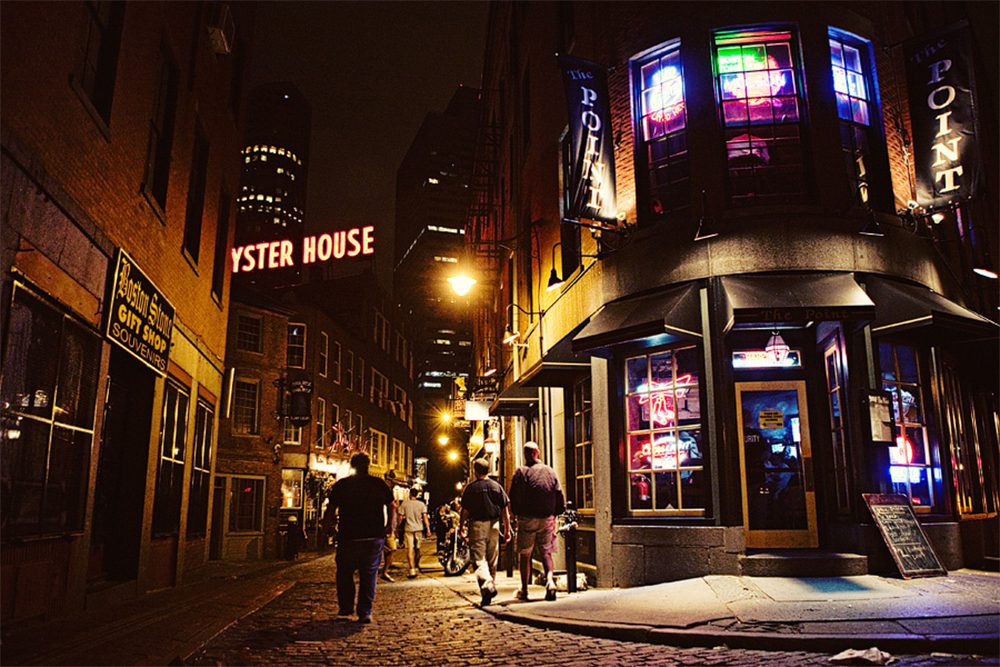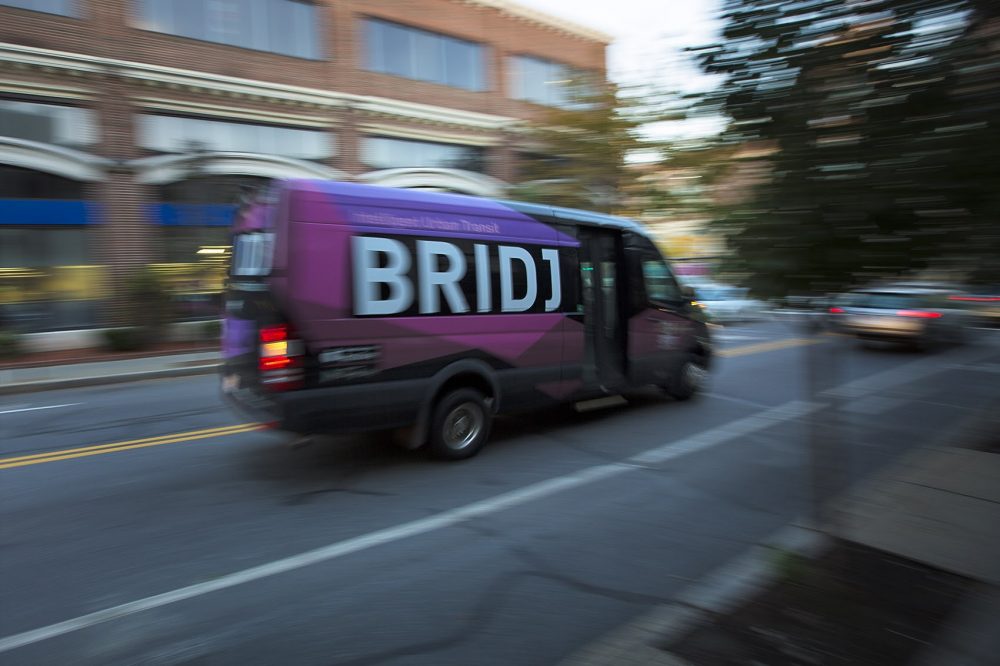Advertisement
MBTA Eyes Partnership With Bridj To Provide Late-Night Transit Service

The MBTA is considering partnering with a local startup to fill the gap in late-night transit service.
The T's Fiscal Management and Control Board discussed a proposal Monday from Bridj, a Boston-based company that runs a private bus service. Bridj allows riders to indicate where they are through its app. Then passengers are directed to a pickup location, along with other riders, that's usually within a 5-7 minute walk. Bridj vehicles can carry up to 14 passengers.
Under its proposal for late-night service, Bridj would operate 10 buses for five hours each night. This would cost the MBTA $85 per hour per bus (an estimated $1.55 million annually), which is 35 percent lower than the $132 per hour it cost to operate an MBTA bus, according to the T. The service would start as a 12-month pilot program.
Bridj has proposed what it calls a "public utility" model for its service. This basically means the T would set the fares and customers would use the Bridj app to request rides, according to acting-MBTA General Manager Brian Shortsleeve. He added that fares could remain the same as MBTA bus fares or could potentially be set higher.
"The T would recoup all of the revenue," Shortsleeve said Monday. "That revenue would just pass back to the T to reduce that estimated annual cost of $1.5 million."
Since the T axed late-night train service in April, many private companies have been looking to fill the gap. Bridj, which sees itself as the next iteration of the city bus, first outlined a plan earlier in the year to provide what it called "flexible, demand driven transit."

But some transit advocates are concerned the Bridj service won't be accessible to everyone.
"We do not need another TNC-type service for well-heeled night owls," said Marc Ebuña, co-founder of the advocacy group Transit Matters. (TNC refers to "Transportation Network Company," a term used to describe ride-hailing companies.) "We need an overnight service that is accessible to all riders, including riders with disabilities."
Currently Bridj's service area includes Allston/Brighton, Kendall Square, Back Bay, Downtown, South Boston and parts of Brookline.
Ebuña's group is also in talks with the MBTA over its own late-night plan geared toward shift workers and those trying to get to and from Logan Airport at odd hours. Bridj's plan is an unsolicited proposal that was submitted to the T through its new innovation proposals policy.
"Our goal through the policy has been to drive innovation [and] creativity through outside the box thinking that’s been lacking in this organization for too long," Shortsleeve said of the innovation proposals policy. He added that the T is hoping to tap into Boston's innovation economy.
Advertisement
But Ebuña raised concerns Monday about Bridj's proposal superseding other discussions the T is having over late-night service.
"We are supportive of the T’s openness to innovative ideas and we believe that our proposal is one of those," Ebuña said. "If the MBTA desires to outsource overnight service, it should do so through a robust competitive process that seeks a service reflective of the plan we put forward and that we are vetting in collaboration with the city and with MBTA staff."
Secretary of Transportation Stephanie Pollack indicated the T would likely continue to pursue all options to provide future late-night service.
"If there are other ways of providing a service at a better price point I don't see why we wouldn’t want to pursue both," Pollack said.
The MBTA plans to conduct a survey to gather feedback from riders on the future late-night service. The T will also decide whether or not to ask Bridj to submit a more detailed proposal to potentially move forward with a late-night pilot program.
"The city has much to gain from tech-transportation companies working together with the public transit agencies of cities," said Bridj Special Projects Lead Mary Rose Fissinger at Monday's meeting. "Bridj has done this in other cities and shown success. And we think that we owe it to the members of this community to try this out in Boston and see if this is in fact a lasting solution."
Bridj currently has a pilot program in Kansas City, Missouri, where it has partnered with the local transit agency to provide on-demand bus service. There, the Kansas City Area Transportation Authority set the price of the rides and the vehicles were built locally by Ford.
This article was originally published on October 31, 2016.
